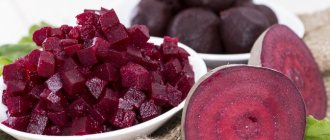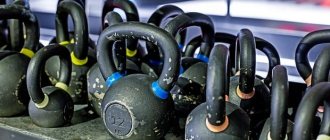Over the past few months, the number of cars on the roads has decreased and the number of people jogging has increased. Among them are experienced runners and those who went jogging for the first time.
Regardless of your experience, whether you are an experienced athlete or a new runner, in order to continue successfully, you, of course, need to organize proper nutrition. To get the most out of every workout, you need to be as energized as possible.
We have made it easier for you - in this article we have collected and summarized the most important information about everything that those who go for a run need to know.
We have divided the recommendations depending on the type of training.
Sprinting
Our definition of a short distance may differ from yours, so we want to immediately indicate that in our understanding, short-distance running is any type of running up to three kilometers.
This could be a sprint, a short test run, or even your first run. Short distance running is likely to be faster than long distance running.
Your main support, especially if you are a competitive sprinter, is protein, as increasing your protein intake is important for maintaining lean muscle mass. Protein is essential for building muscle, and sprinting is an explosive sport that uses many muscle groups, including the legs, arms and abdomen.
Before each run, try to eat protein foods. This could be a protein shake, bean salad, or turkey sandwich. Don't forget to leave enough time between running and eating, because your food needs time to be digested. Believe me, running on a full stomach will cause severe discomfort.
After your run, once you've completed your stretching and cooled down, try to eat a meal that contains plenty of protein. You don't have to rush and eat protein within 20 minutes or an hour after your run. Just make sure your next meal contains plenty of protein.
When should you not eat after training?
After you have run, there is a lack of fat in the body and the body takes your subcutaneous fat, which you need to get rid of.
Because of this, you can’t eat heavy food that contains a lot of fat after training, because you won’t get results this way. But this does not mean that you cannot drink - on the contrary, you can drink as much water as you want. You can also drink green tea or fruit drinks made from natural berries, but without sugar.
In the morning
If you run in the morning and your goal is to lose weight, then you should not eat 60 minutes after training. But if you really want to, try to break your hunger with water, tea without sugar, or, as a last resort, eat an apple after at least 30 minutes of respite. Also, 40-50 minutes before training, you can sit down with oatmeal and drink a cup of cocoa without sugar, this really helps to cheer you up.
During the day
If you are losing weight, then meals should be divided into 5-6 times during the day, 200-300 grams per serving. If it’s not enough, increase the portion, but most importantly not before bedtime or for breakfast, because these are the main two food groups that can greatly affect your weight, as well as your workout.
In the evening
If after running you immediately go to bed, then you can drink half a liter of kefir with one percent fat content, no more (kefir is a very important component for weight loss). Or eat 120-150 grams of low-fat cottage cheese.
Middle distance running
For professional competitive runners, "middle distance" can mean a distance of between 400 and 1,500 metres, while for recreational runners it ranges from five to ten kilometres.
The longer you run, the higher your maximum oxygen consumption (VO2max) and you need more carbohydrates to increase it. This means that the longer you run, the more carbohydrates you need to consume, since this is the macronutrient that produces the energy needed to run.
We recommend that you eat or snack before your race, focusing on slow-release carbohydrates such as bananas, beans, and whole grains. Be sure to also include sources of protein and healthy fats as these are essential for maintaining energy levels.
When you return from your run, make sure to reintroduce carbohydrates, protein, and fat into your meals, as this balanced combination of three macronutrients will help you recover better.
What can you eat?
When playing any sport that is somehow related to losing weight (not just running), you don’t have to give up food, especially after training. You just need to try to eat low-fat foods that are high in proteins and carbohydrates. After all, the result of your training should be a beautiful figure.
So try to eat:
- Low-fat dairy products (cottage cheese, fermented baked milk, kefir);
- Protein should be taken from meat (chicken or beef);
- Eggs are also an excellent source of protein and are best eaten for breakfast;
- Eat fish, an important source of protein;
- It is better to take carbohydrates from porridges (buckwheat, oatmeal, millet, semolina);
- And eat more fruits, they also contain many useful vitamins.
Long distance running
Whether you're training for a specific event or your races have progressed into a half marathon or marathon, we're sure you'll find these tips helpful.
Glycogen stored in our muscles is usually the first response when it comes to energy during the first 90 to 120 minutes of a run. Energy also comes from some of the glucose in the blood and stored fat. As the duration of exercise increases, fat oxidation becomes the main source of energy.
Therefore, before the race, you need to maximize your body's glycogen stores. This is where “carb loading” comes into play.
Make sure your meals the morning of your race and the night before are high in carbohydrates. Try to eat foods with a low glycemic index (GI) so that energy is produced slowly over time. These foods include oats, legumes and wholemeal bread.
It is necessary to take care of “fuel” during the race - you can take energy bars and gels, a banana with you. Ask a friend to meet you halfway and pass you snacks, or take them with you.
Conclusion
It is generally accepted that the longer the race, the more carbohydrates should be contained in the food taken before training.
Before you begin training, it is worth taking the time to determine for yourself which technique works best for you. If you find that eating a large meal before a race doesn't suit you, eat after your workout to help your body recover and recharge.
Translation: Farida Seidova
Articles on our website are presented for educational and informational purposes only. We do not recommend using article materials as medical advice. If you decide to take dietary supplements or make fundamental changes to your diet, first consult with a specialist.
Nutrition options before long training/competition
3-4 hours BEFORE
– the size of the meal should be 2/3 of the usual serving (4-5 g of carbohydrates per kg of body weight):
● sandwich with low-calorie cheese (grain bread, fruit, yogurt); ● pasta with small pieces of chicken; ● a bun with skim milk and a piece of fruit.
2 hours BEFORE:
● cereal with skim milk; ● yogurt, fruit/dried fruit and a small bun.
An hour before:
● sports drinks with soy protein and carbohydrates, gels, smoothies, fruits.
Photo: istockphoto.com
What you can and cannot eat after running
When taking sports into your life, a person certainly wants to see the results of his daily efforts. Whatever your goal as a runner, maintaining a healthy lifestyle is essential to reaping the benefits of your sport. Eliminate bad habits, such as drinking alcohol, illegal substances or smoking, and replenish your body only with healthy elements. Which products will bring an athlete closer to a healthy and happy life, and which ones will worsen their well-being during regular races?
The right fuel for a runner:
- porridge (oatmeal, buckwheat, millet, rice);
- bananas;
- berries;
- dried fruits;
- green tea);
- whole wheat bread;
- salmon;
- eggs;
- veal;
- chicken breast;
- legumes
These products will undoubtedly benefit the athlete. They should be consumed both before and after jogging, following the recommendations of nutritionists.
The main “enemies” for a runner:
- bacon, fast food;
- alcoholic and energy drinks;
- highly fatty and sweet treats;
- all fried foods;
- melons, broccoli and bell peppers, as they irritate the stomach.
After or during a run, do not replenish your fluid supply with carbonated water, sparkling mineral water, cola drinks or caffeine drinks.
Nutrition before running
Regardless of whether you plan to run in the morning or in the evening, experts do not recommend running on an empty stomach. During fasting, glucose levels decrease, and the body begins to burn muscle tissue rather than fat. In order not to feel weak and increase endurance, it is important to eat 1.5-2 hours before class. Food should contain sufficient amounts of proteins and carbohydrates.
Professional runner level
If jogging is done regularly throughout the year, and there is motivation for sporting achievements, the training can be called professional. In this case, proper morning preparation for jogging is important.
Meals should include:
- A full serving of proteins: an omelet, boiled eggs, a sandwich with turkey or white lean fish, yogurt or sugar-free cottage cheese.
- Complex carbohydrates in the ratio to proteins are approximately 1/3. Vegetables, dried fruits, muesli, bananas, apples or rice are suitable.
- Protein drink or fruit and milkshake. They will help avoid dehydration and add substances necessary for building muscle mass.
Recommendations for Beginners
For those who are just starting to run, it is important to provide the body with additional energy and stimulate the production of dopamine. This will help you stay motivated and continue studying.
Foods you can eat before training:
- almonds, avocados or bananas;
- fruit and berry smoothies with yogurt and nuts;
- vitamin and mineral complex with ginseng.
Foods enriched with carbohydrates
When running to lose weight, you should pay attention to the amount of calories in food, taking into account your age. The amount of food containing carbohydrates should not exceed 200-300 g (the older a person is, the less carbohydrates his body requires). In this case, preference is given to complex carbohydrates.
Breakfast can be supplemented with:
- a slice of whole grain bread with peanut butter;
- durum wheat pasta;
- bagel with honey;
- fruit salad of bananas, oranges and nuts.
Diet restrictions
It is better not to eat fatty foods high in calories before jogging. It will not give the desired effect, and may cause digestive problems, nausea or fluid retention. Proper nutrition when running for weight loss also involves limiting the consumption of salty and sweet foods.
Also prohibited:
- fast food;
- smoked and fried meat, fish, chicken;
- sausages;
- mushroom dishes;
- sauces, mayonnaise;
- chips, crackers, foods high in salt;
- baked goods, sweets, chocolate;
- carbonated drinks.
To avoid overloading your kidneys and heart, you should not drink a lot of liquid before jogging. After breakfast, drink sweet tea or a glass of fruit juice (no more than 200 ml).
Sports nutrition for running for weight loss
You can find sports nutrition in specialized stores and fitness clubs. It is not only suitable for professional athletes. Such food is not a complete replacement for natural products, but it allows you to supplement your diet with elements that increase strength and promote muscle growth.
The benefits of sports nutrition include:
- rapid absorption by the body and high efficiency;
- the ability to adjust the diet taking into account age and level of training;
- positive effects on metabolism and hydration;
- strengthening joints, increasing immunity.
When and how much to eat before running?
I would like to answer this question with exact numbers, but from a professional point of view it is difficult. Several factors need to be taken into account.
Metabolic rate
Each person has his own metabolic rate. This indicator depends on genetic predisposition, age, gender, hormonal levels, physical activity, and diseases.
Download training plans to prepare for the marathon and half marathon.
Start preparing right now!
You can calculate your own basal metabolic rate (BMR) using special online calculators or using the Mifflin-St. George formula:
For men: (10 * (weight, kg) + (6.25 * (height, cm) - (5 * (age, years) + 5
For example, (10 * 60) + (6.5 * 164) - (5 * 27) + 5 = 1536 kcal/day
For women: (10 * (weight, kg) + (6.25 * (height, cm) - (5 * (age, years) - 161
For example, (10 * 50) + (6.5 * 164) - (5 * 23) -161 = 1290 kcal/day
The result will show how much energy your body uses at rest per day.
To understand how many calories you spend on activity, multiply the result by the appropriate coefficient:
- Light load (1.6 - 1.9)
- Average load (1.9 - 2.0)
- Expressed load (2.0 - 2.2)
- Heavy load (from 2.2 and above)
Nutrition composition
From the previous point it follows that it is important to consider the calorie content of the food you are going to eat before running. But even more important for training is the rate of breakdown of substances.
- Fast carbohydrates are absorbed most quickly by the body. Instant source of energy! These include: flour products, fruits, juices, dates, etc.
Conclusion: Fast carbohydrates are best for breakfast to boost your energy;
- Slow carbohydrates are stored in glycogen, which is later easily used by the body. This group of products includes cereals (rice, buckwheat), durum wheat pasta, vegetables, fruits, and berries.
Conclusion: An ideal source of energy before a race in the afternoon, in the evening (when it is possible to start eating 2-3 hours before training);
- Proteins: meat, fish, dairy products, beans, eggs. They draw water onto themselves, loading the kidneys and cardiovascular system while running. Allows muscles to recover from microtraumas.
Conclusion: Proteins are consumed after training;
- Fats: meat, fish, butter, sour cream, cheese, fast food. Obtaining energy from fats is an extremely energy-intensive and time-consuming process.
Conclusion: Fats are eaten after running in small quantities.
Ideal time to eat before running
Morning running
The body needs energy. However, getting up a few hours before training (at 4 - 5 am) in order to have time to stock up on glycogen is difficult.
Follow 2 basic rules before your morning jog:
- Stock up on glycogen the night before. Dinner should be light, contain a large amount of slow carbohydrates (mainly cereals);
- 30 minutes before your run, eat fast carbohydrates (banana, yogurt, cookies).
Run during the day or evening
This schedule allows you to take care of your glycogen reserves in advance. Try to have lunch 2 - 3.5 hours before the start of your workout.
The right choice would be slow carbohydrates, preferably a minimum of fiber.
Long distance running
2 - 3.5 hours before the race, have a light portion of slow carbohydrates for lunch.
When running long distances, you often need to replenish your energy reserves during the run.
Grab some baby puree, a cereal bar, a banana or an oatmeal cookie to give your body a boost.
Professional athletes use special gels and isotonic solutions.
Nutrition after running for weight loss
After a workout, especially if it was intense, many people do not feel hungry. Experts say this is normal. However, the body still needs to replenish its supply of useful elements. You should eat within an hour after class.
Proteins remain the priority component. They are supplemented with vegetables, carbohydrates and fats. The total number of calories should correspond to gender, age, and intensity of exercise.
Replenishing carbohydrates after a run
After running, the body begins to intensively restore glycogen levels. If carbohydrates are not replenished during this period of time, protein loss may occur, which will negatively affect liver function and overall endurance. These calories will also be useful for muscle growth.
Food options:
- rice, millet or semolina porridge with milk, honey and candied fruits;
- pasta;
- potatoes with lean meat.
Restoring balance
After running, the digestive system works at half capacity, so you can’t eat too much at once. It is recommended to start recovery with a glass of grape or cranberry juice.
These drinks contain glucose, which will increase insulin production and stimulate digestion. The juice can be supplemented with crackers. For professionals, an instant protein drink would be an excellent solution.
20-30 minutes after training, you can consume protein foods.
It is recommended to adhere to the following rules:
- Proteins should not be fatty. For example, cottage cheese and yoghurts often contain a high percentage of fat.
- Veal is a healthy meat, but it is better to avoid beef and pork. They are difficult to digest and slow down protein absorption.
- Fish, boiled or steamed, should be eaten more often. It contains Omega-3-saturated fatty acids, which are actively involved in metabolic processes necessary for weight loss.
- Caffeine should be avoided. It prevents insulin from working properly.
- Alcohol is prohibited.
After training, you should not limit your fluid intake. Everything that the body loses during physical activity must be replenished. This ensures correct cell functioning, heat exchange and hydrobalance.











